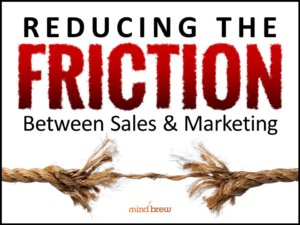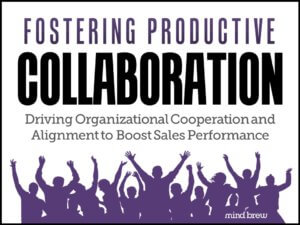When it comes to creating their sales compensation plans, managers face a dilemma: should they design their plans to promote competition or should they try to come up with a system that encourages teamwork?
Plans designed solely with competition in mind pay people based only on their individual performance. If Joe sells $20,000 worth of product, he gets the commission on that $20,000. End of story.
The idea here is to incentivize each salesperson to work as hard as possible because no one is going to be able to coast by on the achievements of the team. In addition, because good salespeople often have a natural competitive streak, these compensation models tend to be popular with top performers. They get a lot of satisfaction out of seeing their name at the top of the sales chart each month, and that can be just as powerful a motivational tool as the actual money involved.
On the other hand, this model also encourages a certain amount of ugly behavior among the staff. Some may try to “steal sales,” and certainly no one is going to spend a lot of time mentoring the lower-performing sales team members. It creates an “every-man-for-himself” culture that isn’t always attractive to current workers and job candidates.
By contrast, a compensation plan designed solely to promote teamwork would pay all staff members equally regardless of their individual contribution. In other words, at the end of the month, the company would tally up the total sales, calculate the total commission, and divide it by the number of people in the sales department.
The upside of this model is that it really encourages the sales team to work together. Your veteran team members have a vested interest in helping newcomers learn the ropes, and no one has any reason to try to backstab their co-workers. These plans tend to be popular with people who have less-competitive personalities or who are average performers.
But the obvious downside is that people have limited reason to do their best. Back in your school days, you probably had the experience of being assigned a group project where one or two people did all the work. The same thing can happen on B2B sales teams, and your top performers will understandably object that this sort of compensation plan isn’t fair to them.
In the B2B world, it is far, far more common to have the competition-only model than the teamwork-only model for compensation plans. But in our Express Guide to Designing Sales Comp Plans That Actually Work, we argue that most B2B firms should at least consider a hybrid approach that awards some commissions based on individual performance and ties some pay to how the team does as a whole.
With this hybrid approach, you get the best of both worlds: star sales people have plenty of incentive to work as hard as possible while also being encouraged to mentor other team members. And the average performers get the support they need without being able to slack off. It encourages teamwork without disincentivizing hard work. And it just might make your office a more pleasant—and more successful—place to work.












